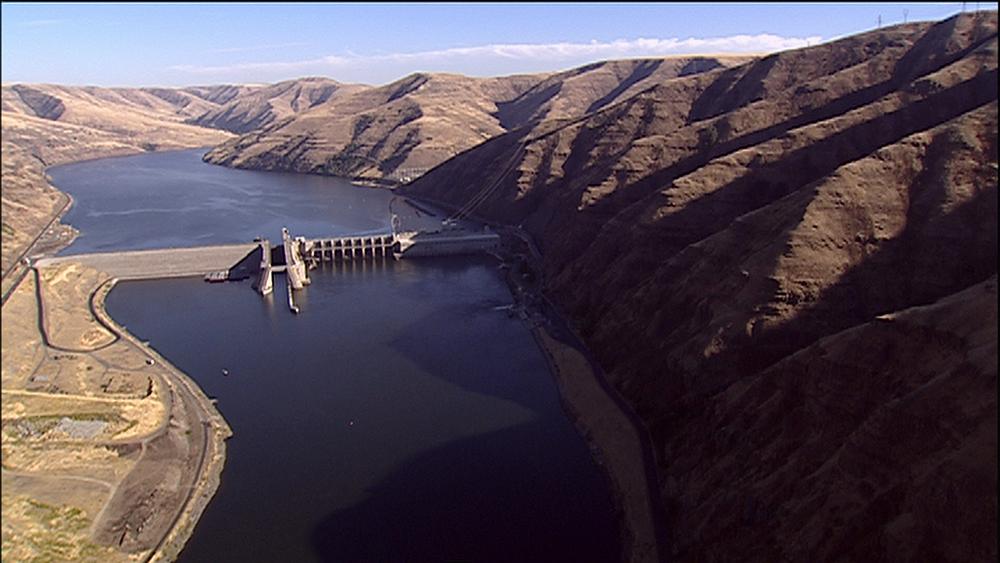
The U.S. Army Corps of Engineers has an extensive sediment removal plan. It includes dredging 114-acres of the Snake River above Lower Granite Dam.
Idaho Public Television / OPB
Conservationists and fishing groups worry their voices aren't being heard during public hearings about the future of southeastern Washington's Snake River dams.
A federal judge ordered agencies to to consider all options on the table when it comes to protecting threatened and endangered salmon that -- including a hard look at removing or altering the four dams on the lower Snake River.
So far, federal agencies are about halfway through a series of open house-style public meetings, where experts present information on poster boards and people can ask questions and talk to them. But conservation groups say the format is preventing them from making their case and preventing the public from participating more fully in shaping new approaches to protecting fish that must survive their passage of dams on the Columbia and Snake rivers.
Related: Taking Down Snake River Dams: It's Back On The Table
Jospeph Bogaard, Save Our Wild Salmon Coalition executive director, attended the first meeting last month in Wenatchee, Washington. He said the current format doesn't allow people to formally share their ideas about saving salmon. Instead, the hearings promote current approaches for protecting fish -- like fish ladders and spilling more water over dams.
“We’ve got to have an open, fair process from the very beginning, or failure almost becomes a certainty,” Bogaard said.
Bogaard said the meeting left him feeling frustrated, unlike the traditional scoping hearings where people voice their opinions in front of a crowd.
“Whether they’re your allies or your adversaries, there’s a conversation that’s going on. There’s an exchange of ideas,” Bogaard said. “And God knows that this issue is, in my mind, in desperate need of a dialogue and community solutions. But that’s not what the agencies are fostering or encouraging.”
The 35 groups sent
to federal officials Monday, stating the open house-style meetings are “fundamentally at odds with the core informational purposes of the National Environmental Policy Act.”
They’re asking for an immediate change of format or suspension of the meetings, an additional 60 days to collect comments and more hearings in California and Alaska.
A Bonneville Power Administration spokesman said officials are reviewing the letter and plan to address it.
So far there have been public meetings in Washington, Montana, and Idaho, with dates in Oregon at the beginning of December.
The final meeting is scheduled for Dec. 8. The comment period closes Jan. 17, 2017.
Correction: Nov. 15, 2016. An earlier version of this story mischaracterized the extent of concern among Indian tribes over how meetings are being held regarding dams on the lower Snake River dams. Only one organization associated with the Nez Perce Tribe has publicly voiced criticism.
